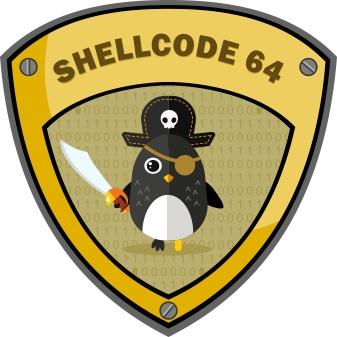English | MP4 | AVC 1280×720 | AAC 44KHz 2ch | 51 Lessons (7h 39m) | 8.80 GB
This course focuses on teaching the basics of 64-bit assembly language for the x86_64 family of processors on the Linux platform and applying it to Infosec. Once we are through with the basics, we will look at writing shellcode, encoders, decoders, crypters, and other advanced low-level applications.
A non-exhaustive list of topics to be covered include:
- Computer Architecture Basics
- x86/x86_64 Family
- Compilers, Assemblers and Linkers
- CPU Modes and Memory Addressing
- Tools of the trade
- Nasm, Ld, Objdump, Ndisasm etc.
- x86_64 Assembly Language
- Registers and Flags
- Program Structure for use with nasm
- Data Types
- Data Movement Instructions
- Arithmetic instructions
- Reading and Writing from memory
- Conditional instructions
- Strings and Loops
- Interrupts, Traps and Exceptions
- Procedures, Prologues and Epilogues
- Syscall structure and ABI for Linux
- Calling standard library functions
- FPU instructions
- MMX, SSE, SSE2 etc. instruction sets
- Shellcoding on Linux
- Execution environment
- Exit and Execve shellcode
- Bind Shell and Reverse TCP
- Staged Shellcode
- Egg Hunter
- Using 3rd party shellcode
- Simulating shellcode
- locating syscalls
- graphing shellcode execution
- Encoders, Decoders and Crypters on Linux
- Purpose of encoding and crypting
- XOR encoders
- Custom encoding
- Random sequencing and scrambling
- mapping functions
- Crypters
- Polymorphism
- Why polymorphism?
- Polymorphic engines
- Techniques and Tools
Table of Contents
1 Course Introduction
2 Course Lab Setup
3 What is Assembly Language
4 CPU Information
5 GDB Test Solution
6 CPU Registers
7 Hello World in 64-bit Assembly
8 Hello World runtime analysis with GDB
9 Reducing Instruction Size and Removing Nulls
10 Data Types
11 Endianess
12 GDB TUI Mode
13 Moving Data
14 The Stack
15 Arithmetic Operations
16 Logical Operations
17 Bit-Shifting Operations
18 Control Operations
19 Looping
20 Load, Store and Move Strings
21 Scan and Compare Strings
22 Procedures
23 Shellcoding Basics
24 Stack Frames and Procedures
25 Exit Shellcode
26 HelloWorld Shellcode JMP-CALL-POP Technique
27 HelloWorld Shellcode JMP-CALL-POP GDB Analysis
28 HelloWorld Shellcode Stack Technique GDB Analysis
29 HelloWorld Shellcode Stack Technique
30 RIP Relative Addressing
31 RIP Relative Addressing HelloWorld Shellcode
32 Execve Shellcode Stack Method
33 Execve Shellcode Stack Method GDB Analysis
34 Execve JMP-CALL-POP Shellcode
35 Execve JMP-CALL-POP Shellcode GDB Analysis
36 XOR Encoder
37 XOR Encoder GDB Analysis
38 NOT Encoder
39 NOT Encoder GDB Analysis
40 Insertion Encoder
41 Insertion Encoder GDB Analysis
42 Metasploit Payloads
43 Custom Payload with Metasploit Encoders
44 MMX XOR Decoder
45 Polymorphism
46 Crypter
47 Chaining Encoders and Crypters
48 TCP Bind Shell I
49 TCP Bind Shell II
50 TCP Reverse Shell
51 Exam Format
Resolve the captcha to access the links!
